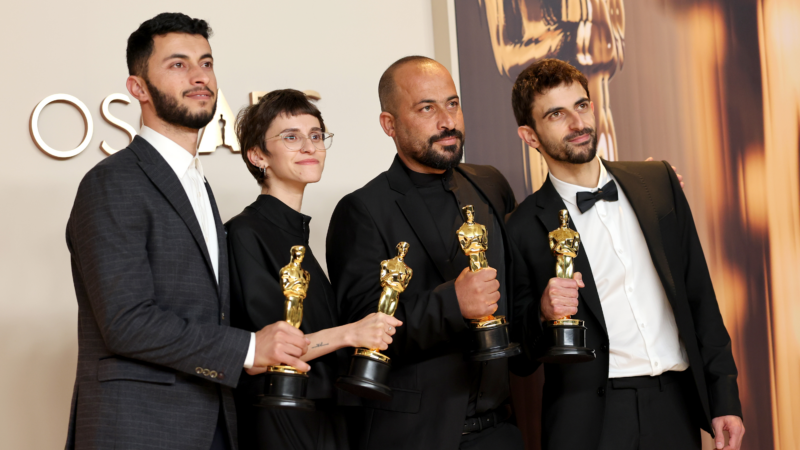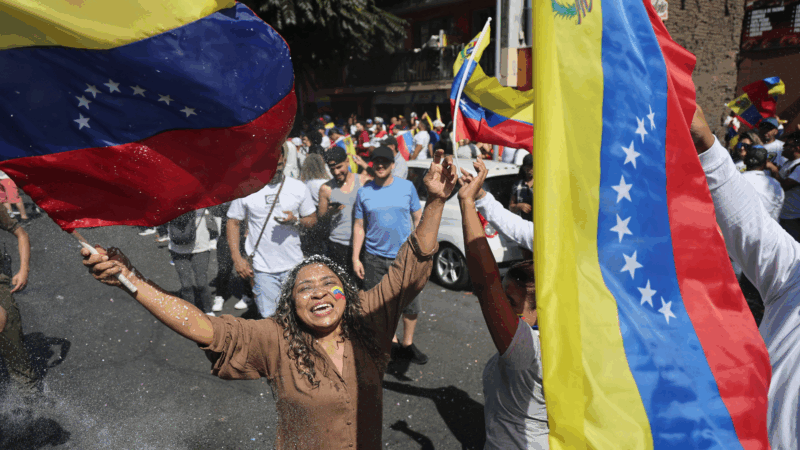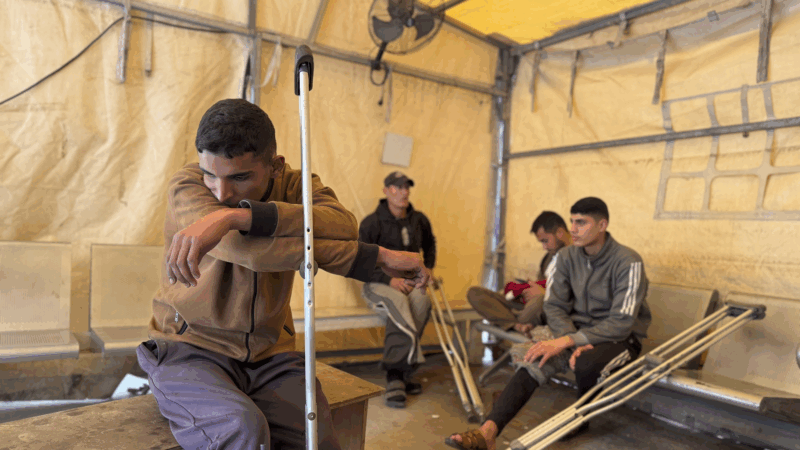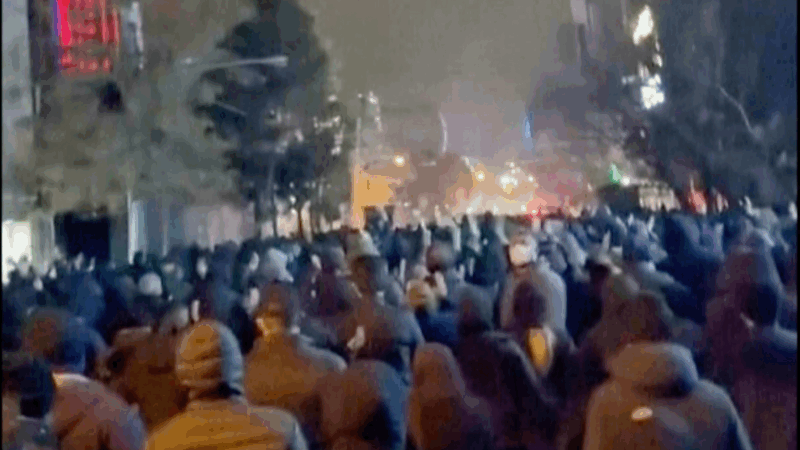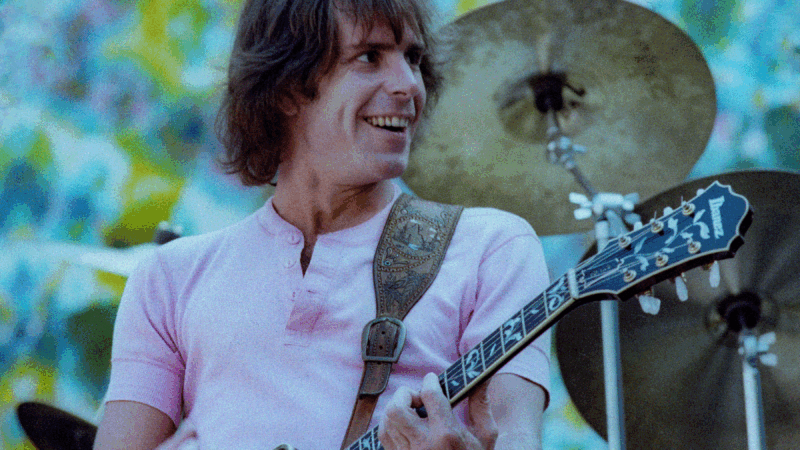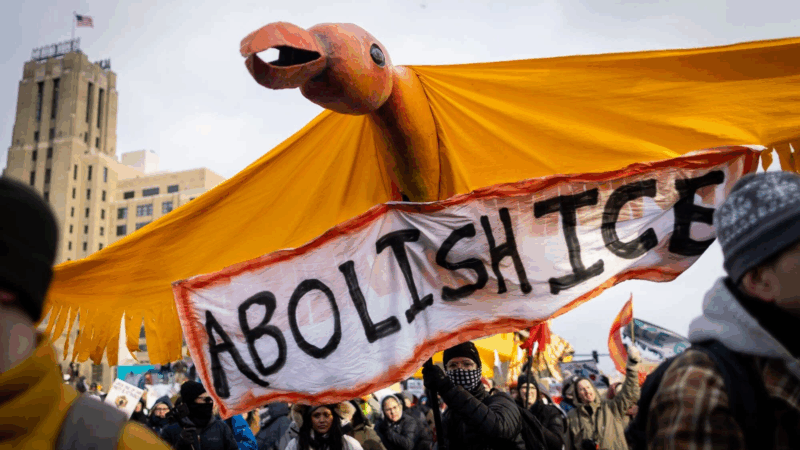Israel’s culture minister calls a Palestinian-Israeli film’s Oscar a ‘sad moment’
TEL AVIV, Israel — Israel’s culture minister has called the Oscar win of a joint Palestinian-Israeli documentary “a sad moment for the world of cinema.” Palestinian residents whose community’s struggles are depicted in the film called the award a morale boost.
The film No Other Land, about activists fighting Israeli demolitions of Palestinian homes in the occupied West Bank, won the 2025 Academy Award for best documentary. The film also highlights the friendship between the Palestinian and Israeli filmmakers.
The Israeli culture minister, Miki Zohar, a member of Prime Minister Benjamin Netanyahu’s conservative Likud party, said in a social media post that the filmmakers “chose to amplify narratives that distort Israel’s image” around the world. He called it “sabotage” against the country, “especially in the wake of the October 7th massacre and the ongoing war.”
Zohar said recent changes to Israeli public funding of film projects were intended to dry up support for such productions, which he called “an industry that builds its career on slandering Israel on the global stage.”
In an interview with NPR, the head of Israel’s documentary film forum called the minister’s comments “shameful.”
“We as a filmmakers community in Israel are facing challenges regarding free speech,” said Roni Aboulafia, the chairperson of the Israeli Documentary Forum. “We’re trying to continue to make this work and continue to tell the Israeli story as it is, without fear and without looking away.”
Israel is minimizing public funding for similar films
Last month, the Israeli government enacted major changes to the way it offers financial support for film projects, giving preference to commercial films with big box-office success.
The change in policy has angered film industry leaders in Israel, who argue the change means less financial support for arthouse and independent films that deal with more politically sensitive subjects.
Israel has also increased public funding for projects by Israeli filmmakers from West Bank settlements — the very enterprise that the film No Other Land criticizes as taking over Palestinian homes and land.
No Other Land did not receive Israeli public funding. It was not screened in Israeli or Palestinian cinemas. The producers posted it for free viewing online.
Palestinians say the film “uplifts our spirits”
Palestinian residents from Masafer Yatta, a community of West Bank villages that is featured in the film, tell NPR they hope the Oscar win can help prevent Israeli attempts to displace them.
Israeli troops have sought to evict villagers from the lands which Israel has deemed a military training zone, and Israeli settlers have harassed and attacked villagers.
“This film really means a lot to us. It uplifts our spirits and helps us move forward with confidence. It boosts our morale even more,” said Mohammed Jabarin, who has seen clips of the film.
Jabarin and his family say they have faced multiple attacks from Israeli settlers amid an Israeli crackdown in the West Bank since the Hamas-led attacks on Oct. 7, 2023.
Two weeks ago, a group of soldiers and settlers approached their home, pointing guns at them, Jabarin says. Last year, he says settlers beat him and his sons.
Ahmed Majdalani, an adviser to Palestinian Authority President Mahmoud Abbas, called the Oscar win a “great achievement” highlighted by both Palestinian and Israeli filmmakers.
Palestinian and Israeli filmmakers give acceptance speeches
In accepting their Academy Award, the Palestinian and Israeli filmmakers called for justice.
“ About two months ago, I became a father and my hope to my daughter: that she will not have to live the same life I’m living now,” said Palestinian filmmaker and activist Basel Adra. “No Other Land reflects the harsh reality that we have been enduring for decades, and still resist, as we call on the world to take serious actions, to stop the injustice and to stop the ethnic cleansing of Palestinian people.”
“We made this film, Palestinians and Israelis, because together our voices are stronger,” said Israeli filmmaker, journalist and activist Yuval Abraham.
He called for the end of Israeli destruction in Gaza and for the liberation of Israeli hostages held by Hamas in Gaza.
“ Can’t you see that we are intertwined? That my people can be truly safe if Basel’s people are truly free and safe? There is another way,” Abraham said, as members of the audience cheered.
Daniel Estrin and Itay Stern reported from Tel Aviv. Nuha Musleh reported from Ramallah, West Bank.
Venezuela’s exiles in Chile caught between hope and uncertainty
Initial joy among Venezuela's diaspora in Chile has given way to caution, as questions grow over what Maduro's capture means for the country — and for those who fled it.
Sunday Puzzle: Pet theory
NPR's Sacha Pfeiffer plays the puzzle with KAMW listener Daniel Abramson of Albuquerque, N.M, and Weekend Edition Puzzlemaster Will Shortz.
Inside a Gaza medical clinic at risk of shutting down after an Israeli ban
A recent Israeli decision to bar Doctors Without Borders and other aid groups means international staff and aid can no longer enter Gaza or the West Bank. Local staff must rely on dwindling supplies and no international expertise.
Iran warns US troops and Israel will be targets if America strikes over protests as death toll rises
Iran's parliament speaker warned the U.S. military and Israel would be "legitimate targets" if America strikes the Islamic Republic, as threatened by President Donald Trump.
Bob Weir, guitarist and founding member of the Grateful Dead, has died at 78
For three decades with the Grateful Dead and three more after the group ended following the 1995 death of his bandmate Jerry Garcia, Weir helped build and sustain the band's legacy across generations.
Nationwide anti-ICE protests call for accountability after Renee Good’s death
Activist organizations are planning at least 1,000 protests and vigils this weekend. Officials in major cities cast Saturday's demonstrations as largely peaceful.

